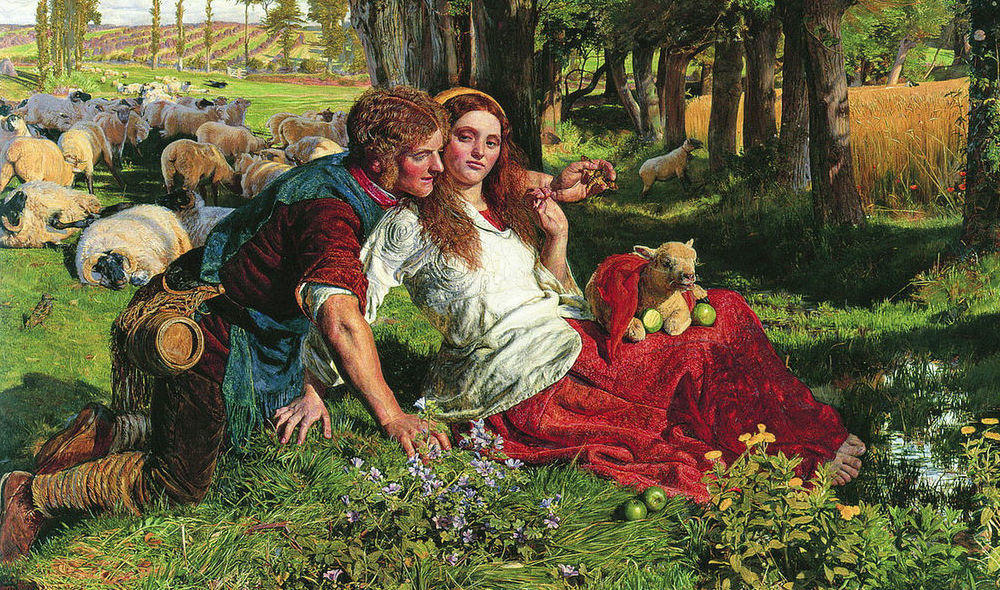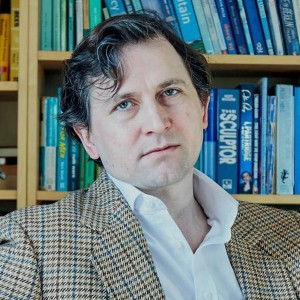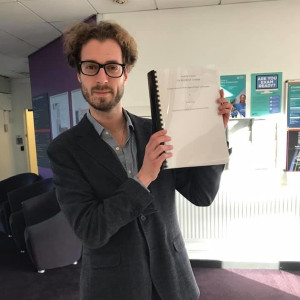Chapters
Most people think of Percy Shelley as a footnote to his infinitely more famous wife's literary career. In fact, he was a published author while still a student at Eaton College, long before he met Mary. And the mainstream take on their relationship suggests a whirlwind romance and undying love. They point at poems like Love's Philosophy as a testament to his romantic inclination.
In fact, Shelley was quite the ruffian. He refused to conform to the sensibilities of his day. This insistence saw him expelled from Oxford. His womanizing provoked his father into ending financial support. Indeed, his behaviour pushed nearly everyone away. What part of him had the tenderness and longing to write about wistful love, as he did?
We need to examine all of the circumstances that led him to embody such a dichotomy. We need to figure out how such an unconventional figure could turn out such achingly beautiful verses. And we need to understand
- who or what inspired Love's Philosophy
- what he was trying to convey with those verses
- how his personal torments influenced his writing
- why this short rhyme resonates, still today

About Percy Bysshe Shelley
By all accounts, Mr Shelley's early childhood was happy. He was the eldest of six children in a well-to-do family. Both of his parents were well-connected and came from money; his father, more so. His early forays into school proved his precocity, particularly in languages. He also had a knack for remembering things.
He transferred to Sion House Academy when he was ten. There, he endured merciless bullying. The taunts would occasionally see him fly into a rage. He started showing other signs of emotional instability, too. Sleepwalking episodes and nightmares tortured his sleep. His waking hours were sometimes fraught with hallucinations.

Two years into his tenure at Sion House, he transferred to Eton College. If the first academy was destabilizing, the second one unmoored him. The taunts and bullying never stopped but, this time, they took on a particularly ugly tone. Writings from the day establish that young Percy seemingly brought much of this torture onto himself. He was aloof and unwilling to conform to custom.
He earned his Mad Shelley nickname as much for his fits of rage as for the wild experiments he conducted. Blowing things up with gunpowder was his favourite pastime. Playing with electricity would do in a pinch. Around this time, he started dabbling in the occult in earnest. Nature, science and spirituality would be his lifelong passions. Unlike Robert Minhinnick, whose powers of observation sufficed to fuel his creative needs.
Mr Shelley's intellectual powers alone could have been enough to turn the tide of opinion in his favour, eventually. However, in his final year at Eton, he published his first novel, which earned him grudging respect and a mild following among his classmates. He enrolled in University College Oxford, but not before publishing a second book, co-authored with one of his sisters.
He didn't stay at Oxford long. He antagonised the school's leadership with his tract titled The Necessity of Atheism. Perhaps not simply because he wrote and published it but because he made it a point to send each school and religious leader a copy. They demanded he submit to questioning. He refused and thus, was expelled.
He further refused his father's order to return home and resume his studies with a private tutor. Now free from any authority, he set about discovering his life. His radical ideas on marriage, religion and politics were already firmly planted. Conquering the female sex would be his next great achievement. He would spend the rest of his short life seducing and abandoning one after the other.
Love's Philosophy
Before embarking on this ode's particulars, let's talk for a minute about Romantic poetry. Man's insignificance compared to the vast bounty of cosmic gifting is this era's central tenet. Shelley took that concept one step further by overlaying his notions of spirituality and regeneration atop of these ideas.
Love's Philosophy by Percy Bysshe Shelley
The fountains mingle with the river
And the rivers with the ocean,
The winds of heaven mix forever
With a sweet emotion;
Nothing in the world is single,
All things by a law divine
In another's being mingle -
Why not I with thine?
See the mountains kiss high heaven,
And the waves clasp one another;
No sister-flower would be forgiven
If it disdained its brother:
And the sunlight clasps the earth,
And the moonbeams kiss the sea -
What is all this sweet work worth,
If thou kiss not me?
What is it About?
On the surface, Love's Philosophy appears to be a poem about a lover's playful argument, putting forward his case for the union of love. Imagery and a strong rhyme appeal to the reader's senses, as was conventional during the Romantic era. Shelley presents this relationship as one on par with cosmic endeavours and, yet, something innocent. Something as simple and abiding as a son's need to honour his father. 'Philosophy' here means an argument or a way of thinking.

Overview
The first stanza begins with descriptions of the environment's elements 'mixing' with itself. It promotes this mingling as a good example for the narrator and their beloved. This is addressed by the tender and slightly archaic 'thee'. The rhyme goes on to paint a picture of an airy, cosmos-loving poet describing the scene in front of him and his presumed love interest. He then draws a lesson from it, turning to speak to his silent companion.
In the second stanza of Love's Philosophy, this address is intensified. The narrator instructs the reader, in the position of the beloved, to look around and 'see the mountains kiss high heaven'. The genial, playful invitation of a 'kiss' is an easier finish than expressing the hope to 'mingle' with each other. A rhetorical question at the end of each verse begs a response of some sort. Surely, he hopes, the desired one.
The reader must take care to not inject our modern use of the word 'romantic' as it relates to an idealised sort of love. More specifically, it projects the state of 'being in love'. This fleeting, ephemeral sentiment is characterised by powerful, irresistible emotions. Acts of devotion such as gift-giving and sentimental expressions reinforce the idealisation of a beloved. They underscore the prioritisation of the relationship above everything else.
However, the poetry of the Romantic era does not deal with this type of romance. As noted above, it's all about recognising humankind's minuscule part in the vast cosmic infinity. From that perspective, we see that Love's Philosophy has far greater significance.
It's less about two would-be lovers and the games they might play, although they, too, are a part of the greater meaning. Instead, it reflects on every visible landmark and feature having its own complementary component. That point is laid bare with 'Nothing in the world is single'. In a sense, Shelley's exposé of duality and his plea to join himself to his companion mirrors the narrator's forlorn sentiment in Charlotte Mew's The Farmer's Bride.
Form and Structure
Love's Philosophy is written in a trochaic meter. That represents a pattern of stressed then unstressed syllables, with four beats in the first three lines of each quatrain and three in the fourth. Each stanza contains a pair of alternately-rhymed quatrains, rhyming ABABCDCD.
There is a strong relationship with - and resemblance to the archetypal ballad meter used by many Romantic poets. The trochaic meter gives the poem a slightly hypnotic, dreamy feel when read aloud. Particularly since ten of the sixteen lines are full trochaic, disyllabic rhymes (like ocean/emotion or heaven/forgiven).
Several lines begin with an extra 'upbeat', properly called an 'analectic' syllable because it extends the normal length of a line. This slight irregularity helps the poem feel spontaneous, despite the evenness of its composition.
Language
The imagery in this poem is relatively simplistic and uncomplicated. 'fountains', 'rivers' and 'oceans' are all unmodified and free from descriptive clutter. The 'winds of heaven' and 'high heaven' can scarcely be called richly descriptive. 'moonbeams', 'mountains' and the 'sea' are also unmodified. There is a simplicity - an innocence about this sort of language, fitting the scene of two lovers on a hilltop.
This innocence continues in the description of a 'sister-flower' and its 'brother'. The relationship the narrator imagines between flowers is fraternal and childish. The word 'disdain' feels out of place as the idea of aloofness between siblings. Perhaps the use of 'thine' and 'thou' rather than 'your' and 'you' also reinforces this. In Shelley's day, thee and thou were still in use, but less so among people of higher status.
In the second verse, Shelley uses the verb 'clasp' twice. The first time to describe how the waves hold one another, the second for how the sun holds the earth. Those are very much Romantic-era poetry elements; they bring this very physical world to the fore. It presents a sensual, if not sexual, connotation. But its effect is rather more repetition to persuade, rather than shock.
After all, if everything 'clasps' naturally, declining to join lips must be a refutation of cosmic laws, mustn't it? And if the elements 'mingle' with one another so readily, then wouldn't turning down the request for a kiss be like disagreeing with the laws of nature? Seamus Heaney's Storm on the Island has something to say about flouting those laws...
'Romantic' and Romantic poetry
Romantic era poets were not restricted to describing love, though emotion was certainly a Romantic-era characteristic. Indeed, William Wordsworth defined poetry as the 'spontaneous overflow of powerful feelings' in his preface to the Lyrical Ballads.
One common theme is that experiences were understood by Romantic poets through their effects on personal emotions. This is partly where our modern 'romantic' love idea comes from. However, poetry by Wordsworth, Shelley and Coleridge often shared other hallmark characteristics. For example, the use of imagery and simple verse forms. As this poem by Shelley includes all of these, it is a good example of a Romantic romantic poem.
Themes Addressed
We must stress again that this ode is not conventionally romantic. Shelley did not write about joining two people in love. He meant to communicate that humans are a continuation of environmental components. Indeed, he dispels all of humanity's arrogance by first outlining what the natural world does. Only after that enumeration does he complain that humans fall short in their ability to match cosmic forces.
He may have even wanted to suggest that humanity runs contrary to the cosmically-ordained order of things. In a sense, this Love's tone is abject. "Look at all of the marvels around us!" it seems to exclaim. "And yet, here we are, incapable of even emulation! Why must that be?"
Shelley rather depicts himself as the hero-poet, the one who can truly see all the splendour. He feels compelled to list each vision, as though his companion might not have the wherewithal to see for themselves what's around them. Furthermore, he appears not to care whether the other party appreciates the magnificence. After listing each feature, he turns the focus back on himself: "If thou kiss not me?"
He makes the narrator insistent on collecting his hero's due, a vital part of poetic imagination. Many Romantic poets interpreted their gift for rhyme as a mystical power granted them by the wellspring of the cosmos itself. Shelley was no exception.
He was a pantheist who believed in divine power but abhorred any man-made gods. In itself that poses a conundrum; it refutes one type of divine inspiration while promoting another. Though Love's Philosophy seems to express whimsy, it's more of a celebration of divine-inspired beauty. It's vibrant, full of life and colour - unlike the Neutral Tones Thomas Hardy writes about.

Summary: Love's Philosophy
Superficially, this poem describes a mildly insistent lover making his case for a joining with his beloved. Readers don't have to scratch the surface too hard to realise it is actually an ode to the power and beauty of nature. A type of terrible beauty that humans belong to but can never transcend.
The hero-poet tells the story. He acknowledges the magnificence of all that can be seen. But then, he immediately discredits himself and his companion for failing - or being unable to follow the example set before them.
The entire rhyme is two stanzas long; each contains eight lines. In each verse, three lines are written in iambic tetrameter followed by one iambic trimeter. This format repeats once to establish a pattern. The rhyme scheme is regular: ABABCDCD, repeated eight times.
Though the language used is evocative, Shelley uses no particular devices or techniques to make his imagery clear. He does make unusual word choices though. One would not typically think that the sun and seas could clasp anything. Perhaps the sun caressing the Earth would have been too suggestive. And too hard to rhyme.
Romantic-era poetry is necessarily straightforward and unadorned. The ethos of the time was to contrast nature and all her bounty with human frailty and insignificance. In this, Shelley succeeds admirably. He paints his visions with grandiosity and awe but ends each verse with a plaintive "Why not me? Why not us?"
Though mesmerising and lyrical, these stanzas fail to distract from Mr Shelley's reputed sense of superiority. He seems to imply that he can see the world far better than his companion; he must interpret these visions to make his case. He highlights that everything has its complement yet fails to acknowledge that she might already have her 'other half'.
Knowing about Percy Bysshe Shelley's romantic entanglements strips quite a bit of polish from this seemingly romantic plea. He married for the first time when he was just 19 years old. This union might have been a rebound affair; he was having trouble processing his breakup with his cousin. That romance cause a deep family rift that further destabilised him emotionally.
Harriet was only 16 when they eloped; she soon found herself expecting. He abandoned the marriage (and two children) after three years to pursue Mary Godwin - Frankenstein's author. This union, too, was short-lived, this time due to his untimely death. In neither marriage was he faithful. He maintained a passionate, platonic relationship with Elisabeth Hitchner, who was almost 10 years his senior.
In his 29 years, Percy Bysshe Shelley fathered six children. He had numerous affairs, both physical and emotional. The literature tells us his two wives were often depressed and despondent over his remoteness and restlessness. Thus, the poetry he writes seems more like the slick words of a silver-tongued devil than a perpetual romantic at heart. In that sense, he's quite a bit like the fellow in Carol Ann Duffy's Medusa.















